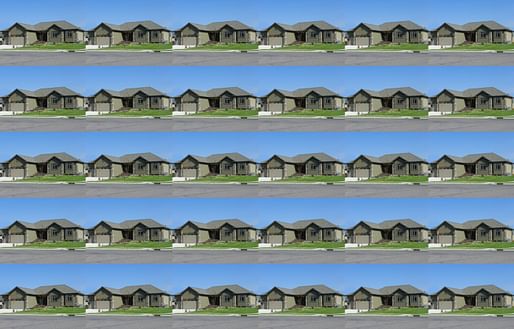

Rather than protecting communities and making it easy for homeowners to restructure bad mortgages or repair their credit after succumbing to predatory loans, the government facilitated the transfer of wealth from people to private-equity firms. — The New York Times
A compelling long-read from Francesca Mari in T Magazine highlights the incredible transformation taking place within single-family housing market, where large investment firms like Blackstone Group have created a new investment vehicle by turning detached homes into rental properties.
The approach was born out of the Great Recession and has taken off over the last decade; Companies like Blackstone now own hundreds of thousands of single-family homes across the country in some of the nation's frothiest real estate markets, reaping high profits from a growing rental class.
5 Comments
Thanks for putting this up. A must read. Two more quotations from the article:
Wall Street’s latest real estate grab has ballooned to roughly $60 billion, representing hundreds of thousands of properties. In some communities, it has fundamentally altered housing ecosystems in ways we’re only now beginning to understand, fueling a housing recovery without a homeowner recovery.
Only now beginning to understand—you have to wonder what there is to discover.
“What is really dangerous to tenants and communities is the full integration of housing within financial markets,” says Maya Abood, who wrote her graduate thesis at the Massachusetts Institute of Technology on the single-family-rental industry. “Because of the way our financial markets are structured, stockholders expect ever-increasing returns. All of this creates so much pressure on the companies that even if they wanted to do the right thing, which there’s no evidence that they do, all of the entanglements lead to an incentive of not investing in maintenance, transferring all the costs onto tenants, constantly raising rents. Even little, tiny nickel-and-diming, if it’s done across your entire portfolio, like little fees here and there—you can model those, you can predict those. And then that can be a huge revenue source.”
Also note Mary King's piece "Wall Street speculators and the loss of affordable housing":
In many cities, investment firms now own enough property to wield the monopoly power to jack up rents, and–with deep pockets and tax breaks–can weather high vacancy rates in order to keep rents high. Wall Street is using those rent payments to create highly profitable new financial assets called rent-backed securities, much like the shaky mortgage-backed securities behind the financial crisis of 2008.
And:
Developers are demolishing sound, habitable, affordable housing and replacing it with housing priced at the very top of the market. The result is to push low- and moderate-income families and communities of color out to the edges of the metro area, away from jobs, schools, public events, parks, mass transit and walkable neighborhoods.
Excellent links. The financialization of the world is also well covered in books such as Makers Versus Takers. The unstoppable chase for returns pushes investors into virtually every asset class, distorting markets and severing the link between assets and users.
It makes me want to cry. The financial vehicles we created are now on auto-pilot and rolling on regardless of the people they crush. Human beings did this. The invisible hand is a human hand.
This is basically Feudalism. We came full circle.
Because of the way our financial markets are structured, stockholders expect ever-increasing returns.
And they expect unrealistic returns in the economic climate now. This is addiction. Cf. the opioid crisis, where we all paid a price.
“Yeah, that’s a story. But the harder story to make people care about is the way that all of our lives are starting to be intertwined into these financial markets that most of us have no investment in. The financiers are making so much money that depends on our everyday debt and expenses. Our mortgages, our rents, our car loans, our student loans. And all of that is dependent on low- and moderate-income people.”
Block this user
Are you sure you want to block this user and hide all related comments throughout the site?
Archinect
This is your first comment on Archinect. Your comment will be visible once approved.